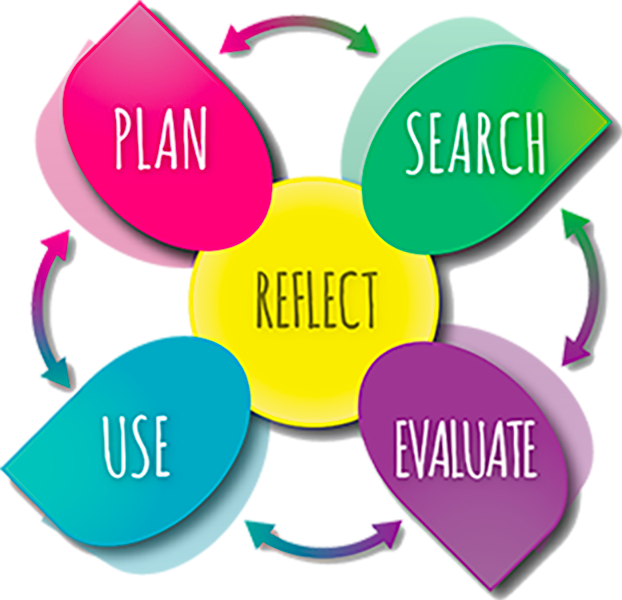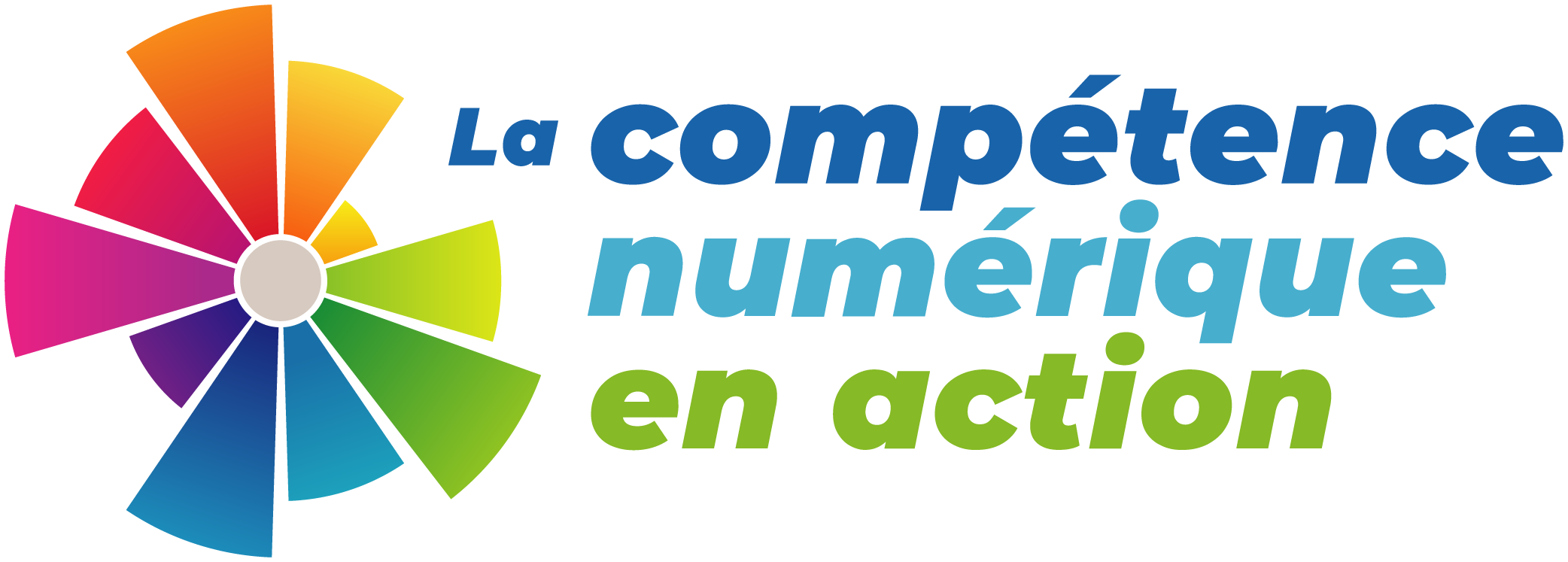
Information literacy is an integral part of digital citizenship. Being information literate means being able to plan, search, and evaluate information in order to create and share new knowledge. Information literacy and critical thinking are lifelong skills that we all need. Using a coherent cross-curricular inquiry process model can help our students develop these essential skills. Elements of Digital Citizenship can easily be addressed throughout an inquiry process.
Using an inquiry process model with only a few steps allows for greater understanding and possibility of learners applying the model.
Our Inquiry Process Model consists for 4 dynamic (not linear) steps:

Research has taught us many things about the teaching and learning of information literacy.
- Similar to other literacies, it is best to start young
- Using a consistent model in a variety of contexts will increase the possibility of transfer
- Practice makes perfect (it helps with memory and retention, turning actions into habits)
- Modelling the skills we hope to see is an important strategy
To help our students acquire these skills, certain strategies can make the learning process more efficient:
- Use problem-solving techniques
- Use narratives
- Zero in on the deeper meaning of the skill you are teaching
- Provide opportunities for active, authentic learning (practice does make perfect!)
Other Inquiry Process Models
- American Association of School Libraries (ALA). Standards for the 21st Century Learner.
- Cook, Dani Brecher and Klipfel, Kevin Michael. (2015) How Do Our Students Learn? An Outline of a Cognitive Psychological Model for Information Literacy Instruction, References and User Services Quaterly, 55(1).
- Freeman, Edward & Lynd-Balta, Eileen. (2010). Developing Information Literacy Skills Early in an Undergraduate Curriculum. Journal of College Teaching, 58(3).
- Heider, Kelly. (2009). Information Literacy: The Missing Link in Early Childhood Education. Early Childhood Education Journal, 36(6), 513-518
- Ilomäki, Liisa., Kantosalo, Anna., & Lakkala, Minna. (2011). What is digital competence? In Linked portal. Brussels: European Schoolnet.
- Shenton, Andrew, K. & Fitzgibbons, Megan. (2009). Making Information Literacy Relevant. Library Review, 59.3
- Tripp, Lisa. (2011). Digital Youth, Libraries, and New Media Literacy The Reference Librarian, 52(4)










